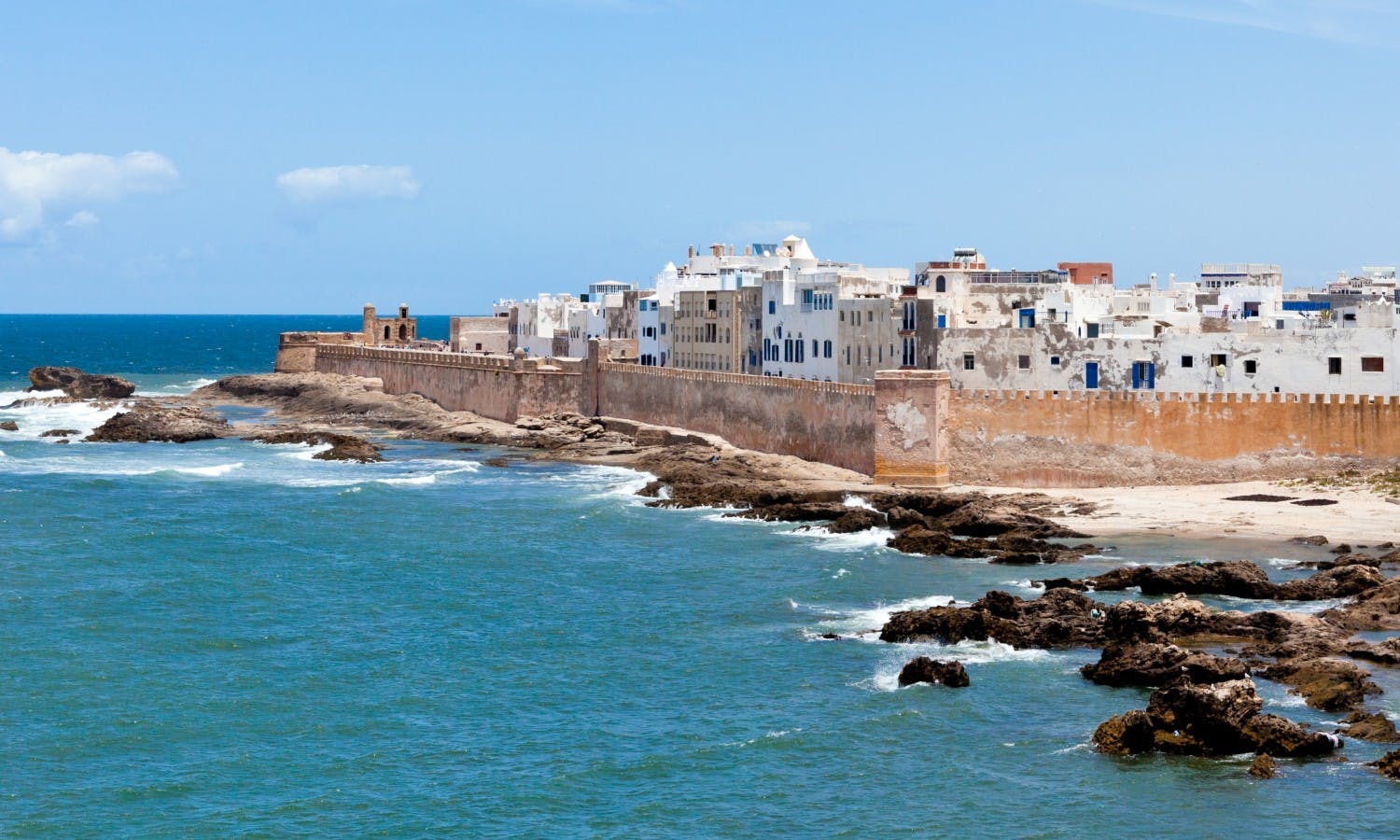Morocco is a North African country known for its diverse landscapes, rich history, vibrant culture, and warm hospitality. The Atlantic Ocean and the Mediterranean Sea border the beautiful coastline of the country. The dramatic Atlas Mountains, the enormous Sahara Desert, and fertile valleys like the renowned Draa Valley immediately come to mind when we think of Morocco.
Morocco is a melting pot of cultures, blending Arab, Berber, European, and African influences. The population is predominantly Muslim, and the country is home to a wide range of ethnicities, languages, and traditions. Morocco has a rich historical heritage with a history spanning thousands of years. Cities like Marrakech, Fez, and Meknes are renowned for their fascinating ancient old quarters filled with intricate architecture, bustling souks (markets), and impressive palaces.
Moroccan architecture is renowned for its intricate details and vibrant colors. You'll encounter stunning examples of Islamic design in structures like the Koutoubia Mosque, the Royal Palaces, and the famous blue-painted streets of Chefchaouen.
When it comes to Moroccan cuisine, it is a delightful blend of flavors, incorporating spices like saffron, cumin, and cinnamon. Traditional dishes such as tagine (slow-cooked stews), couscous, and mint tea are widely enjoyed, showcasing the country's culinary richness. Also, Moroccans are known for their warm hospitality, offering visitors a welcoming and friendly atmosphere. Traditional customs like henna tattoos, music, and folklore dances add to the cultural tapestry of the country.
From the golden dunes of the Sahara Desert to the breathtaking waterfalls of Ouzoud, Morocco offers a diverse range of natural wonders. The Atlas Mountains provide opportunities for hiking and trekking, while coastal towns like Essaouira and Agadir offer beautiful beaches.
Travelers who are looking for an immersive and magical experience will find Morocco to be a fascinating destination because it offers a one-of-a-kind combination of natural beauty, rich cultural traditions, and historical sites.
Morocco, officially known as the Kingdom of Morocco, is a country located in North Africa. Its history spans several millennia, with influences from indigenous Berber cultures, Islamic civilization, and European colonialism. Here's a brief overview of Morocco's history:
Ancient History: The region that is now Morocco has been inhabited since prehistoric times. The indigenous Berber people established several kingdoms and city-states, such as the Carthaginian colony of Carthage and the Roman province of Mauretania Tingitana.
Islamic Era: The Muslim conquest of the Maghreb began in the mid-7th century CE and was completed in the early 8th century. This period witnessed the introduction of both the Arabic language and Islam to the region. While Morocco became part of the broader Islamic Empire, it initially functioned as a subordinate province of Ifriqiya, with local governors appointed by the Muslim governor in Kairouan.
The native Berber tribes embraced Islam, while still adhering to their customary laws. Additionally, they were required to pay taxes and tribute to the newly established Muslim administration. Over time, various Berber dynasties emerged and controlled different parts of Morocco. One of the most prominent dynasties was the Almoravids, who expanded their influence across North Africa and Spain.
Medieval Dynasties: The Almohad dynasty rose to power in the 12th century, promoting a strict interpretation of Islam and expanding the empire. They were succeeded by the Merinids, who made Fes their capital and established a prosperous period of trade and cultural development.
European Influence: In the 15th century, European powers, particularly Portugal and Spain, began exploring and colonizing parts of Morocco's coastline. The Portuguese occupied several cities, while the Spanish established enclaves in North Morocco. The Saadian dynasty managed to expel the Portuguese and reunify the country.
Alaouite Dynasty: Since 1666, Morocco has been ruled by the Alaouite dynasty, which continues to govern the country today. The dynasty successfully resisted foreign invasions and expanded Morocco's influence, reaching its zenith during the reign of Sultan Mohammed III in the 18th century.
French and Spanish Protectorates: In the late 19th century, France and Spain established protectorates over parts of Morocco, dividing the country into different zones. The resistance against colonization culminated in the Rif War (1920-1926), led by the Berber leader Abd el-Krim.
Independence and Modern Era: Morocco regained its independence from France and Spain in 1956. Sultan Mohammed V became the first king, and later his son, Hassan II, assumed the throne. Morocco has since pursued economic and political reforms, including the establishment of a constitutional monarchy.
Today, Morocco is a diverse nation known for its rich cultural heritage, historic cities like Marrakech and Fes, beautiful landscapes such as the Atlas Mountains and the Sahara Desert, and a thriving tourism industry. It maintains diplomatic relations with numerous countries and plays an active role in regional affairs.
A. The top tourist attractions in Morocco in 2023 are:
A. The best time to visit Morocco is from September to November and March to April, when the weather is mild and comfortable.
A. The currency of Morocco is the Moroccan Dirham.
A. Located in the dramatic Rif mountains, Chefchaouen is the prettiest town in Morocco.
A. You need 5 days to visit Morocco.
- Visit the iconic landmarks with a private guide to learn about history and heritage.
- Explore the shopping atmosphere by wandering through the souqs.
-The beaches in Morocco are wonderful places to unwind.
 Best time to visit
Best time to visit Language Spoken
Language Spoken Weather
Weather